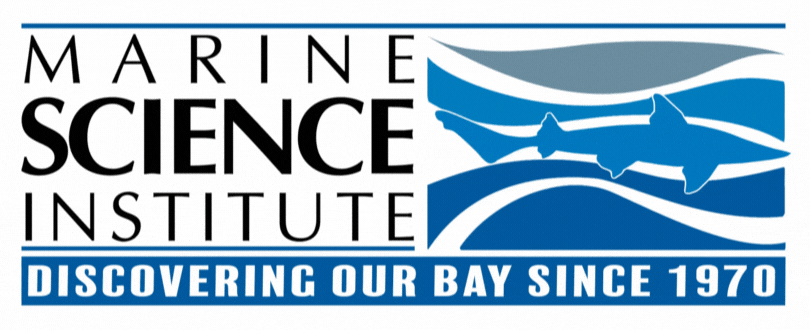Keeping our programs current and modern at Marine Science Institute is essential as an education organization. As advances in the field of marine science are uncovered we must reflect the current research and newfound conclusions within our education programs. Despite oceans containing 99% of the habitable space on this planet (NASA.gov), less than 5% of the oceans have been explored by humans (NOAA.gov). This results in new developments and discoveries breaking every day!
As a marine science education facility it is our job to contribute to these developments and relay relevant and current information to those we teach. Our staff come into MSI with experience in different sub-disciplines: microbiology, marine ecology, biological surveys, aquaculture, or with expertise on a particular marine species or group of animals. Many of us got our start gaining practical experience in the field and testing hypotheses. While field experience is invaluable, we have become removed from it due to our focus on education and inspiring the next generation of marine scientists. It is our responsibility to periodically redirect our attention to the field studies and conclusions of our fellow scientists so that we can deliver the best program to students and foster their curiosity.
Given that new discoveries are made daily, one can’t help but wonder if it is even possible to stay up to date. The constant change in marine science knowledge is one of the things that makes being a marine science educator a great privilege. It can seem daunting but this field would not be fun if one knew everything! How do we stay up to date on the information that we relay in our educational programs? Below we include ways in which MSI staff educate themselves on relevant marine science topics:
Intensive week-long training prior to MSI’s busiest seasons.
Monthly meetings in which current marine and aquatic topics and teaching methods are discussed.
Professional development opportunities such as webinars, workshops, seminars and conferences.
Reading articles in various reputable peer-reviewed journals. Some of our favorites include Frontiers in Marine Science, Journal of Experimental Biology, ICES Journal of Marine Science, and The Biological Bulletin.
Subscriptions to Science News (monthly periodical) and Current – The Journal of Marine Education (quarterly journal), available to all staff.
It is the responsibility of scientists and educators such as ourselves to push the envelope and relay relevant knowledge and understanding, ultimately challenging students to be aware of how marine ecosystems function. By continuing our own education we can successfully benefit from all of the ideas, data and interpretations that have been accumulated. The ocean remains the biggest resource for life on Earth and it is our duty to drive marine science education and awareness forward.





